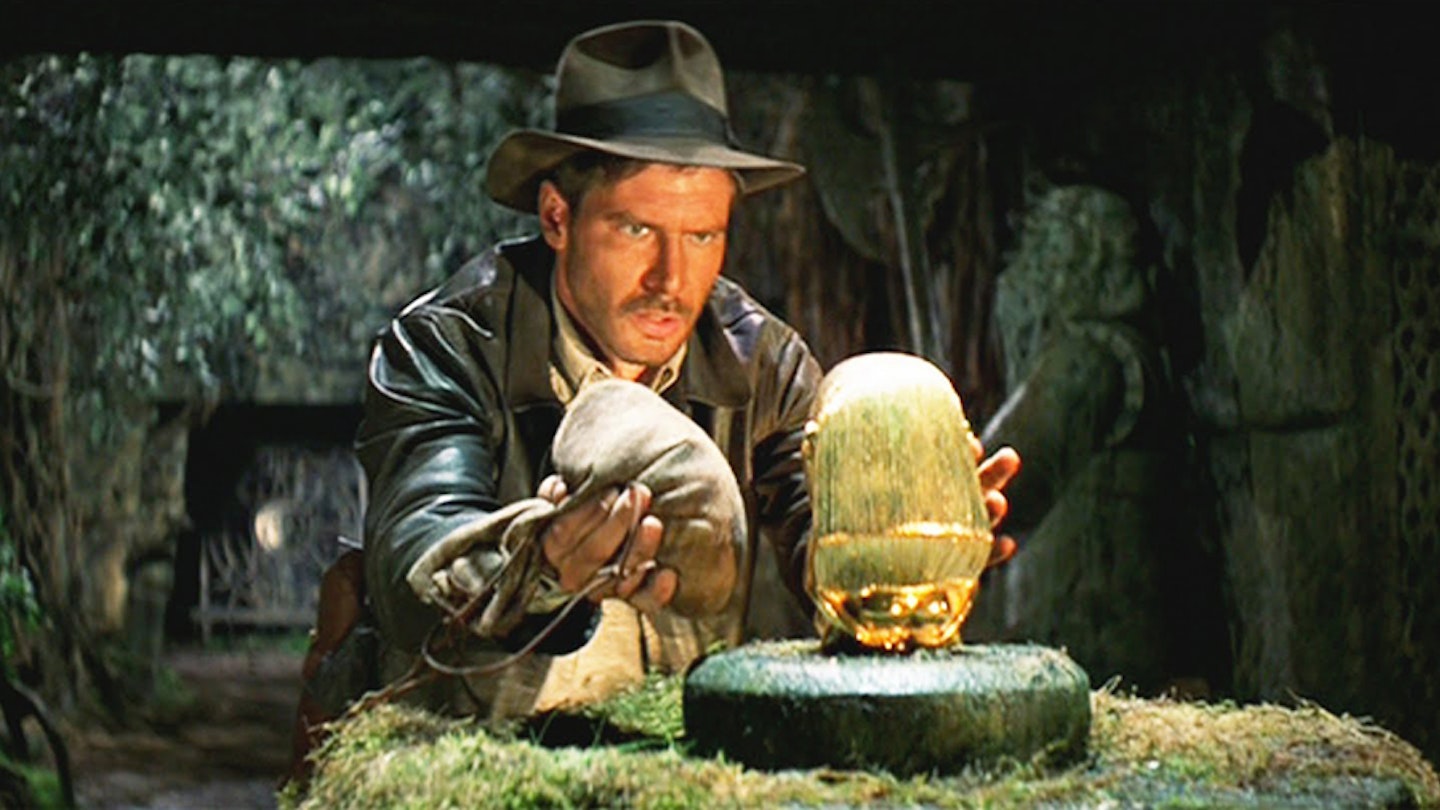Everyone remembers the Big Spielberg Set-Pieces — the Mothership landing in Close Encounters, the rolling boulder in Raiders, the bike over the moon in E.T. The Extra-Terrestrial. Yet the thing that often sets Spielberg films apart are the small flashes — the memorable shots, telling details, humorous asides and sublime grace notes — that litter each and every film (even the ones that don’t entirely work). As Lincoln hits cinemas, we survey every Spielberg flick and pull out the magic, privileged moments that have been present and correct over the past 40 years.
Duel (1971)
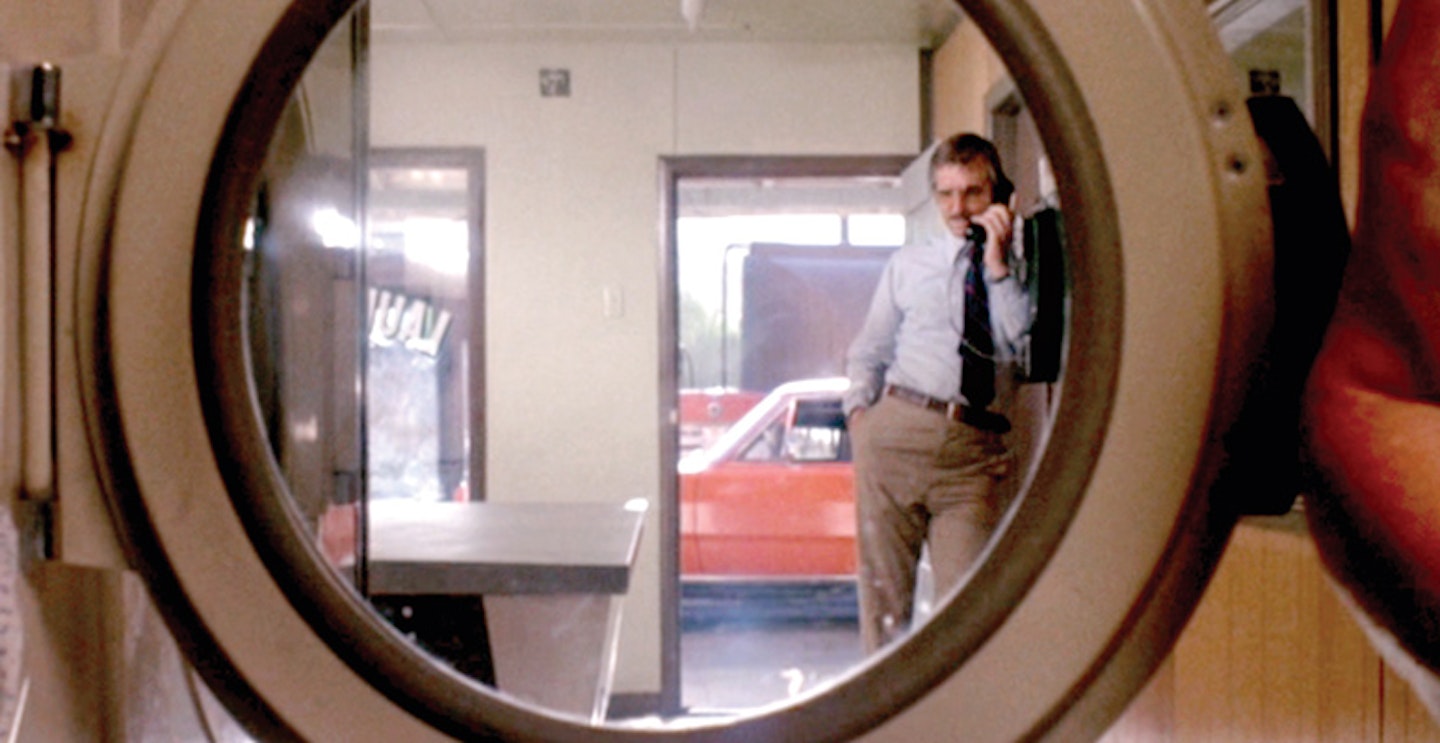
The moment: Harried suburban salesman David Mann (Dennis Weaver) takes time out in a Laundromat to call his wife.
***The magic: ***Even in this early stage of his career, Spielberg was a huge advocate of the frame within a frame. The simple act of a woman opening a washing machine door to perfectly frame Mann’s phone does numerous things; it adds depth to the shot; it funnels our attention on Mann; and it provides a visual metaphor for a man (Mann) trapped. This may be for TV but Spielberg was always thinking cinematically.
The Sugarland Express (1974)
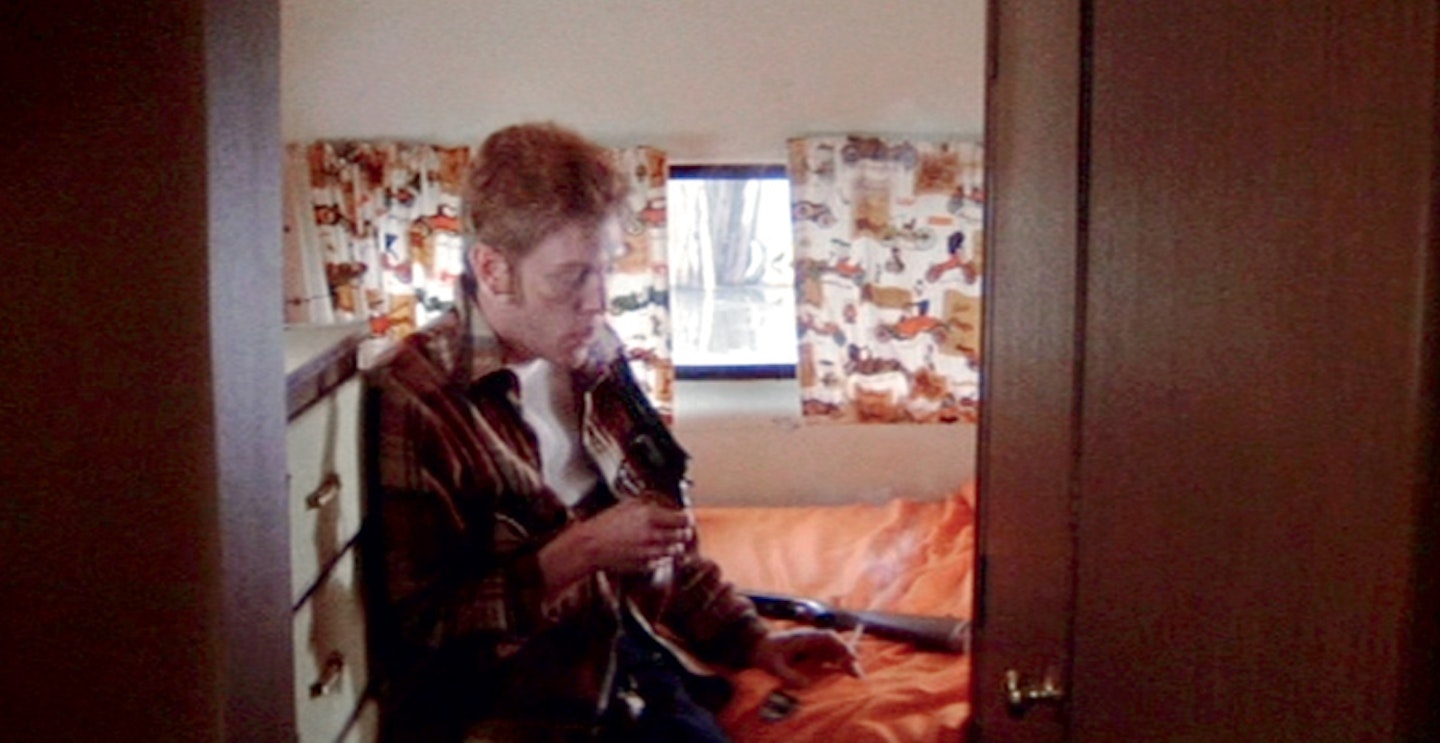
The moment: Holing up from the 5-0, Lou Jean Poplin (Goldie Hawn) and Clovis Poplin (William Atherton – Walter Peck from Ghostbusters!) watch a Road Runner cartoon through the trailer window, Clovis adding his own sound effects.
The magic: Spielberg has always been a huge fan of cartoons ¬— Close Encounters is a veritable encyclopedia of animation references — but the director draws something poignant from his appropriation of Chuck Jones here. The violent demise of Wile E. Coyote feels like a foreboding portent to the fate of Lou Jean and Clovis. And when their laughter turns to something more serious, they realize it too.
Jaws (1975)
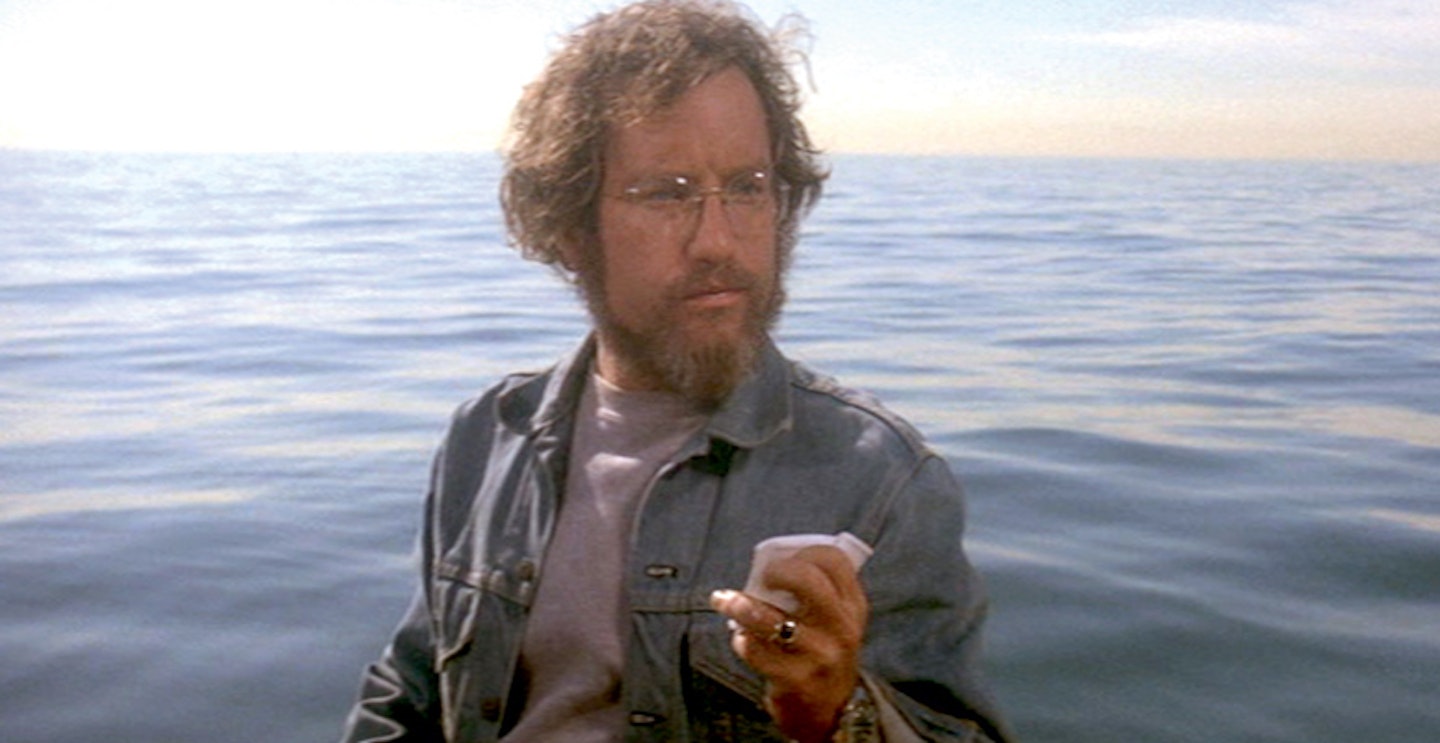
The moment: On board the good ship Orca on the hunt for a killer shark, sea salt Quint baits Hooper by knocking down his beer in one and crushing the can in his hand. Hooper reacts by sinking the dregs of his coffee and scrunching up the Styrofoam cup in one hand, all the time returning Quint’s gaze.
The magic: Much of Spielberg’s career has aimed at puncturing the macho, exposing the resources of the ordinary man at the expense of the leading man ideal. Hooper’s riposte illustrates this but also perfectly illustrates the building tension between the man of action and the man of science while providing an adroitly judged moment of light relief.
Close Encounters Of The Third Kind (1977)
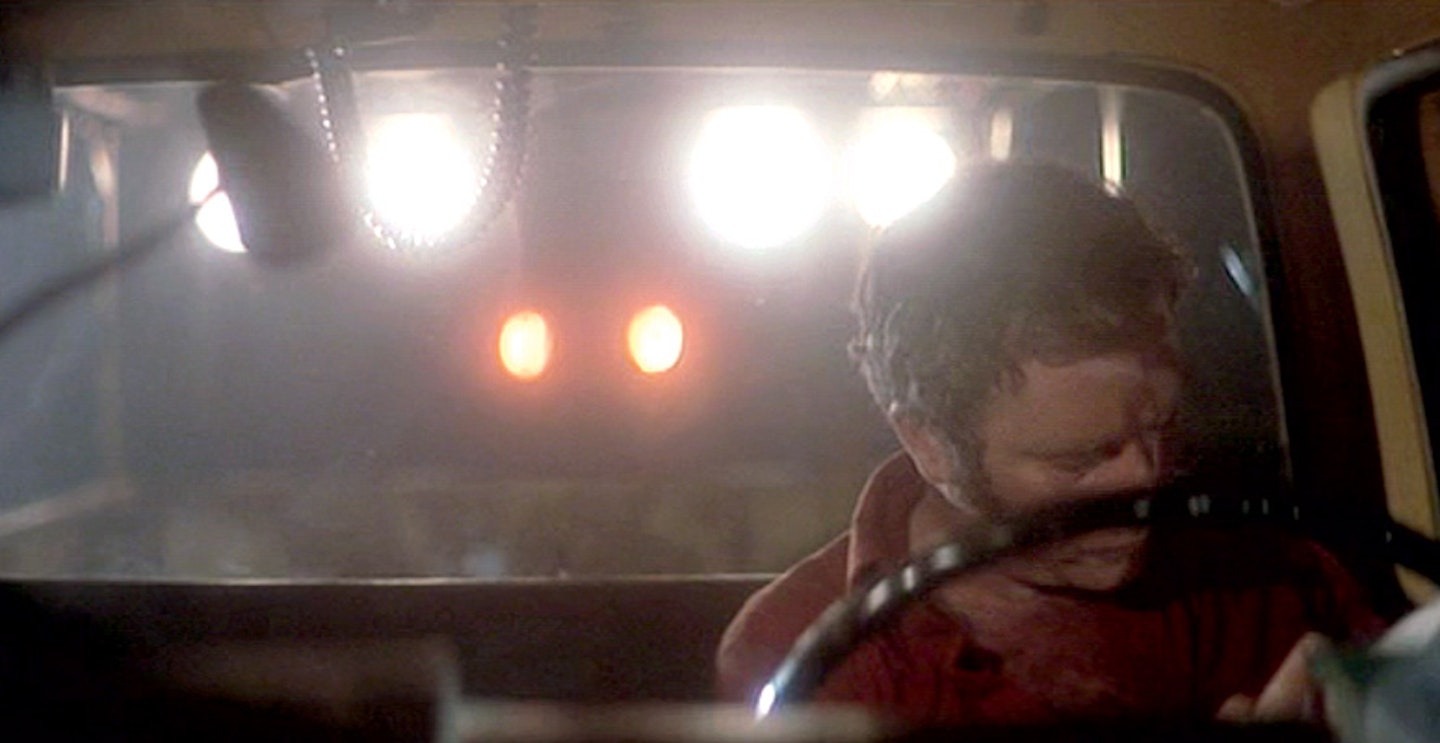
The moment: On his way to sort out electrical outages sweeping across Indiana, lineman Roy Neary (Richard Dreyfuss) stops to check his map. As headlights pull up behind him, he waves them forward to receive a torrent of abuse from an impatient driver (“You’re in the middle of the road, jackass!”). As the next sets of headlights arrives in his rear view mirror, he waves them forward only to be oblivious to the fact that the headlights rise vertically up into the night skies.
The magic: It’s mechanical effects to produce an elegant visual moment in the service of a remarkably droll wit.
Check out Empire's review of Close Encounters Of The Third Kind here
1941 (1979)
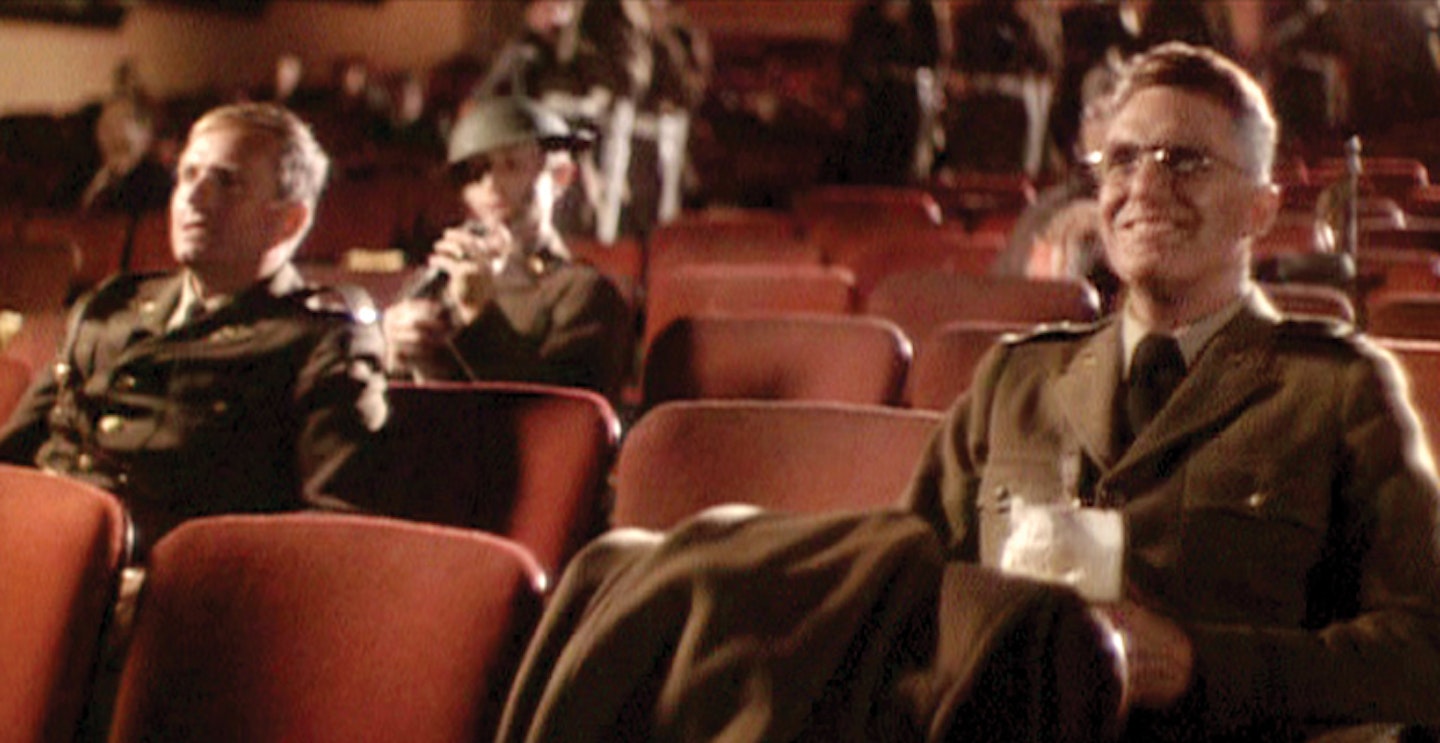
The moment: Seeking respite from the craziness in post-Pearl Harbor Los Angeles, General Joseph Stillwell (Robert Stack) ducks into a movie theater to take in the delights of Dumbo.
The magic: 1941 isn’t renowned for its subtlety but in all the knockabout farce and over the top shouting, there is a beguiling beat as Stillwell, a hardened military man, is undone by Walt Disney’s elephant – he sings along (“I’ve seen a peanut stand/a rubber band”), he cries and it is sweet, funny and touchingly human, not to mention an evocative reminder of the power of movies.
Raiders Of The Lost Ark (1981)
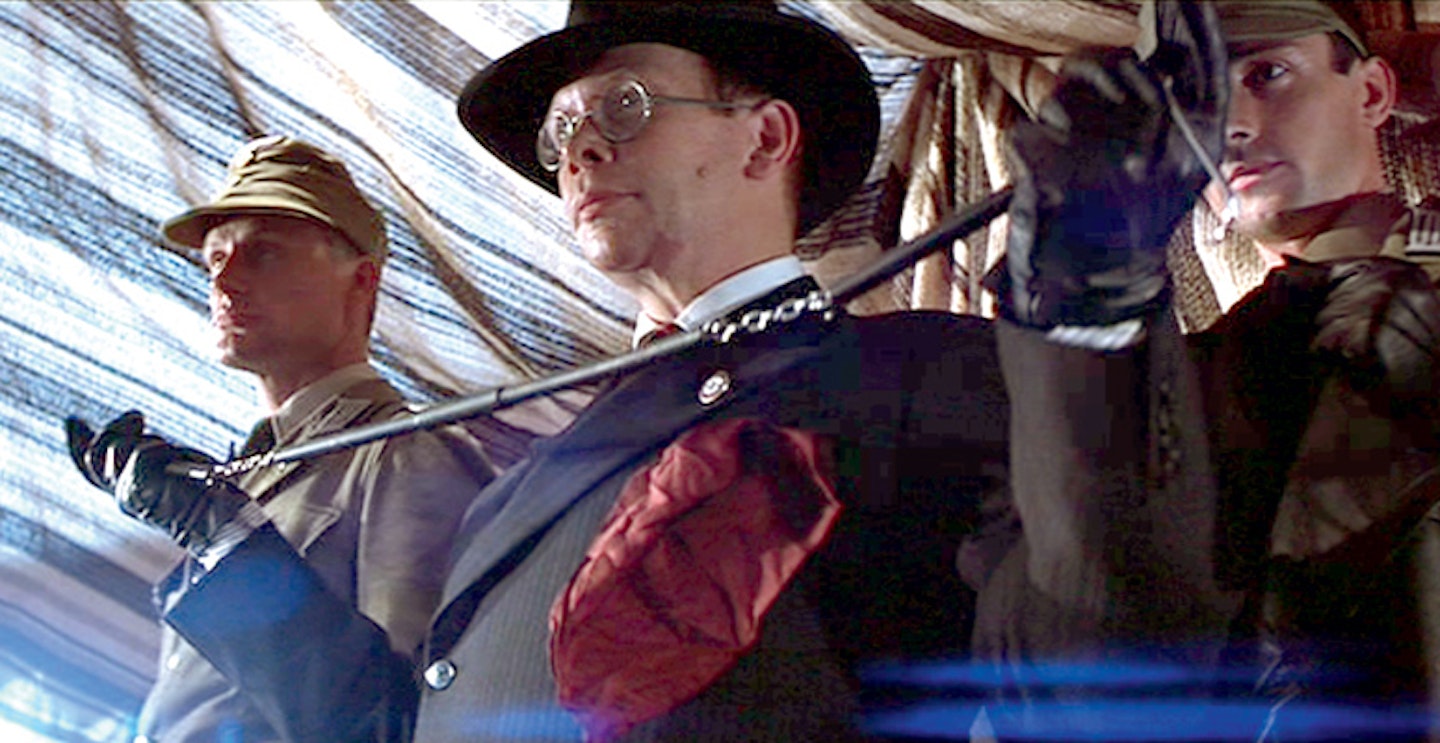
The moment: Marion Ravenwood (Karen Allen) tries to escape from the clutches of Rene Belloq (Paul Freeman). Her flight is curtailed by evil Nazi Toht (Ronald Lacey) who, slipping of his leather trench coat, produces what seems like an instrument of torture from a small bag. As Marion and Belloq gasp and gulp, Belloq proceeds to hang his jacket on it.
The magic: It was a gag meant for Christopher Lee’s Nazi on 1941 but feels far more at home within the subtleties of Raiders, a sublime spin on the cliché of Gestapo vee-have-vays-of-making-you-talk intimidation subverted to incredibly funny ends.
E.T. The Extra-Terrestrial (1982)
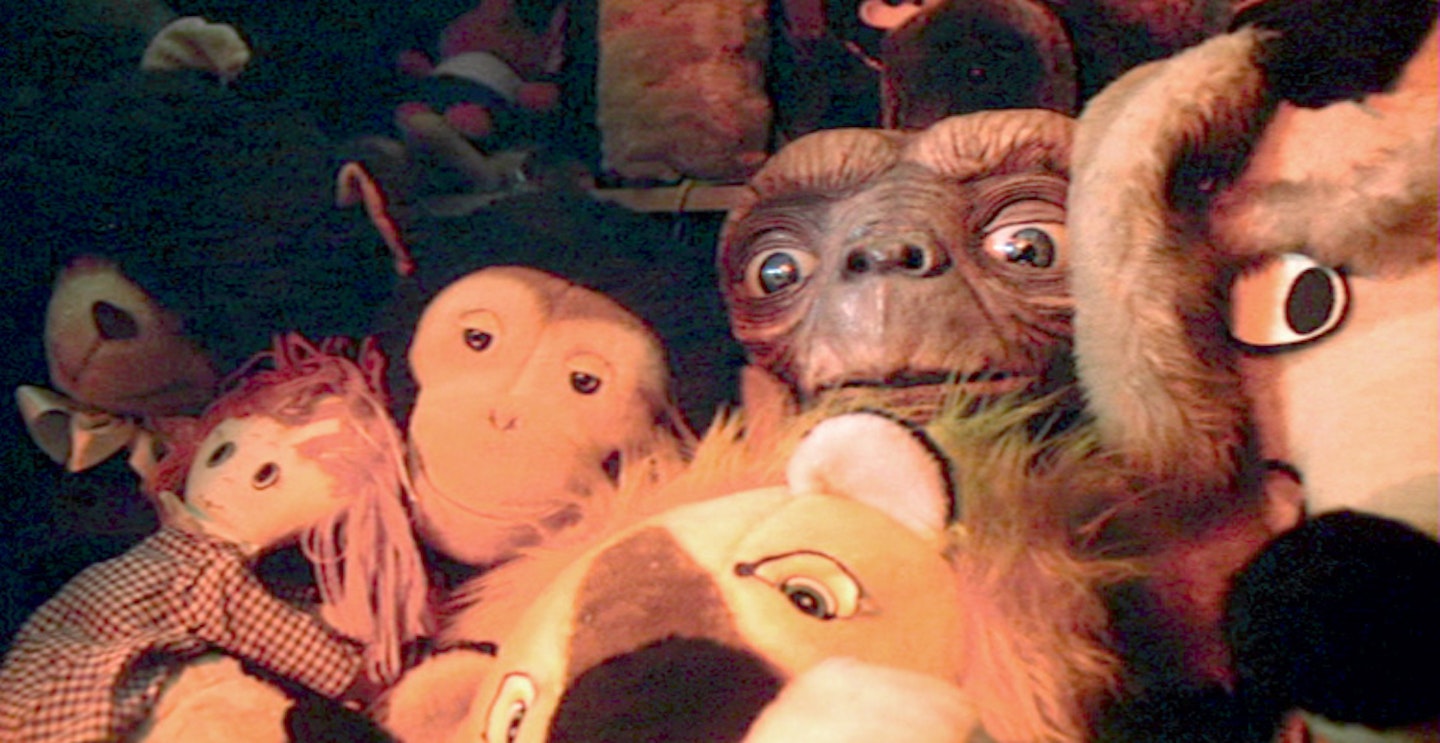
The moment: Hearing sounds emanating from her children’s bedroom, Mary Taylor goes upstairs to investigate. Opening the door to the toy closet, she fails to notice a motionless E.T. in the midst of stuffed lions, monkeys and dolls.
The magic: It is the impassivity of E.T.’s face, completely expressionless, as the camera slowly past him. Lovely stuff.
Check out Empire's review of E.T. The Extra-Terrestrial here
Indiana Jones And The Temple Of Doom (1984)
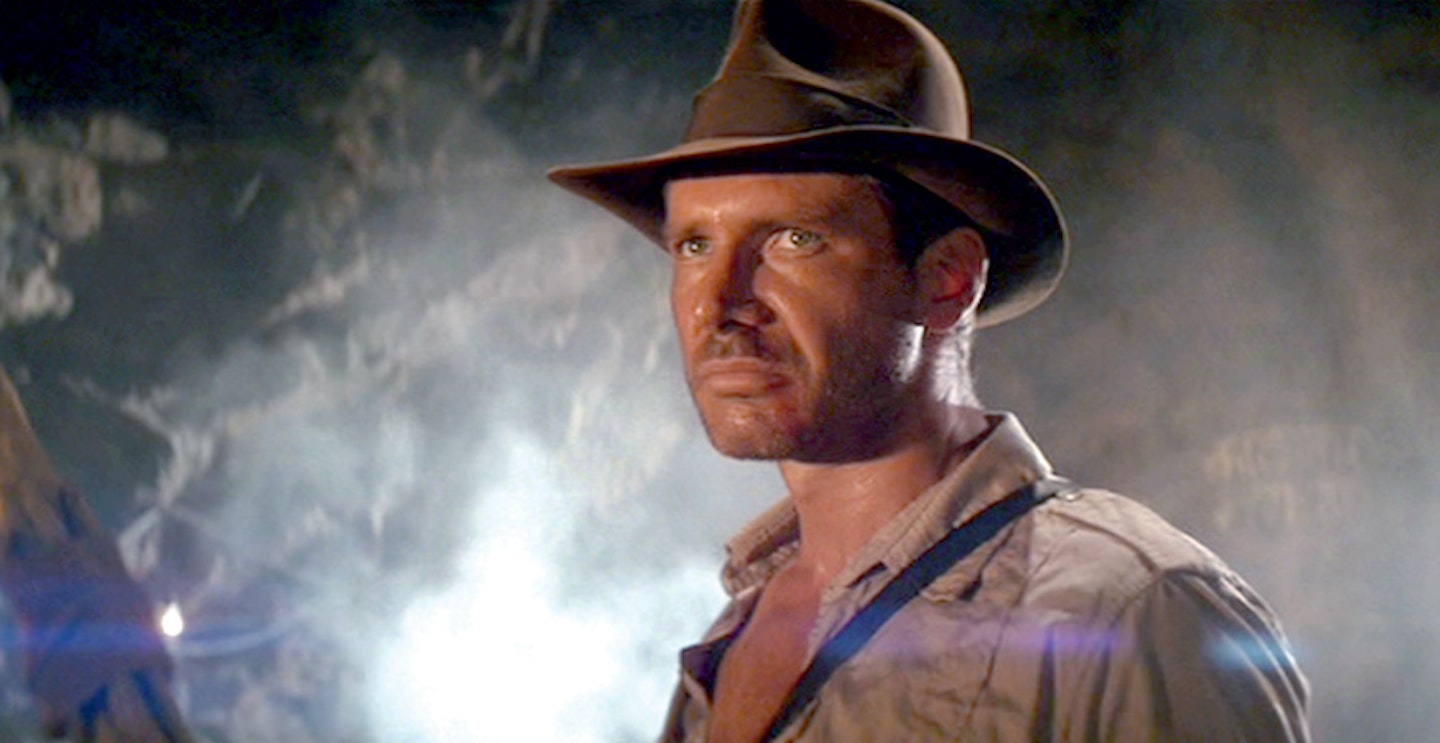
The moment: Two Thuggee guards fly into frame. Cut to: the camera slowly moving toward Indy (Harrison Ford), looking mean, moody, and ready for action.
The magic: No-one can use camera movement and lighting to inscribe a moment with meaning like Spielberg. The slow portentous dolly, the dramatic backlight turn and Harrison Ford’s skill at an action pose turn this into an icon for heroism for the ages.
Check out Empire's review of Indiana Jones And The Temple Of Doom here
The Color Purple (1985)
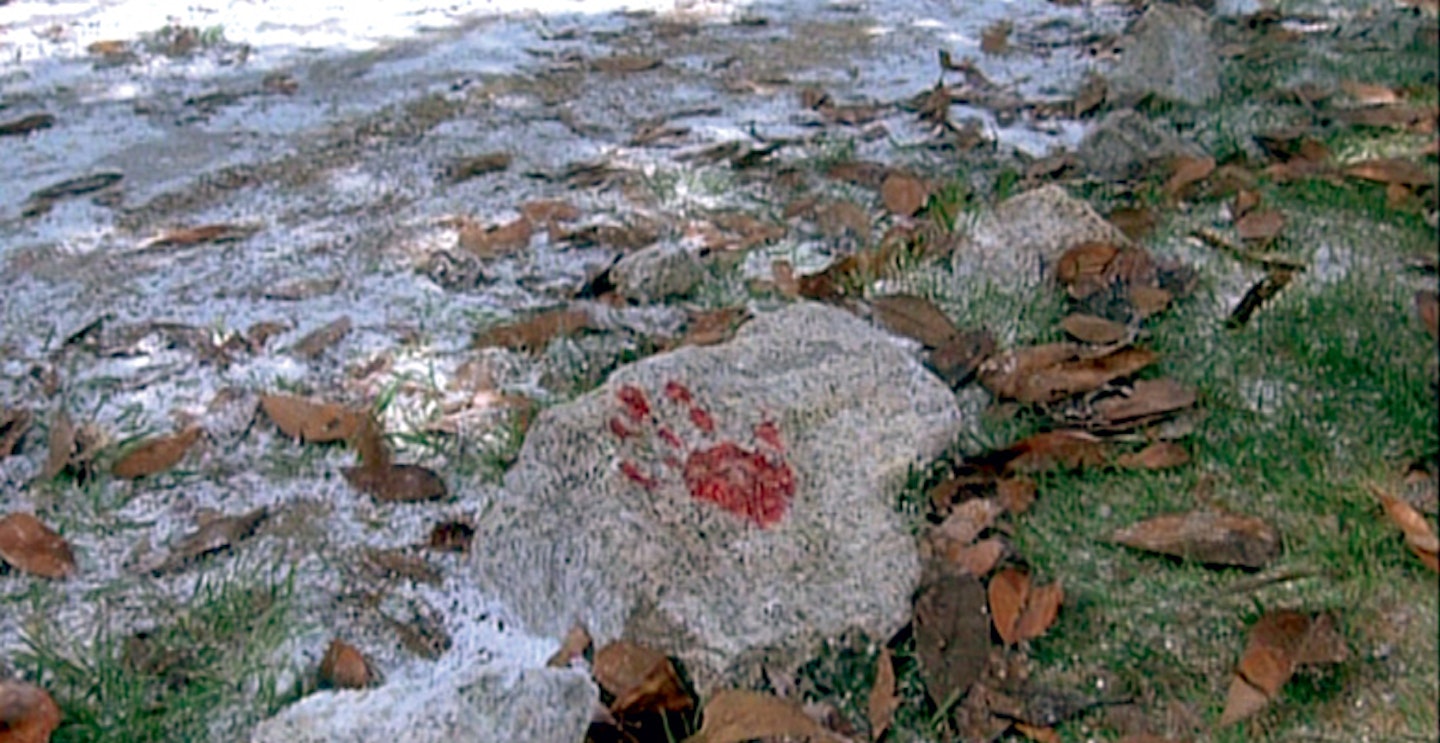
The moment: Celie (Whoopi Goldberg) enters the household of her new husband, the brutal Mister (Danny Glover). His children all lined up in a row to greet her. One of the kids throws a rock that strikes her on the head. Stumbling around, she falls over by a boulder.
The magic: Spielberg shoots the above with remarkable economy. He starts with a shot from Celie’s POV approaching the kids as they launch a rock. We cut to Celie entering the frame from the right and, as she falls to the ground, her bloodied hand leaves an imprint on the boulder — a potent visual reminder far more powerful than blood streaming down a face.
Empire Of The Sun (1987)
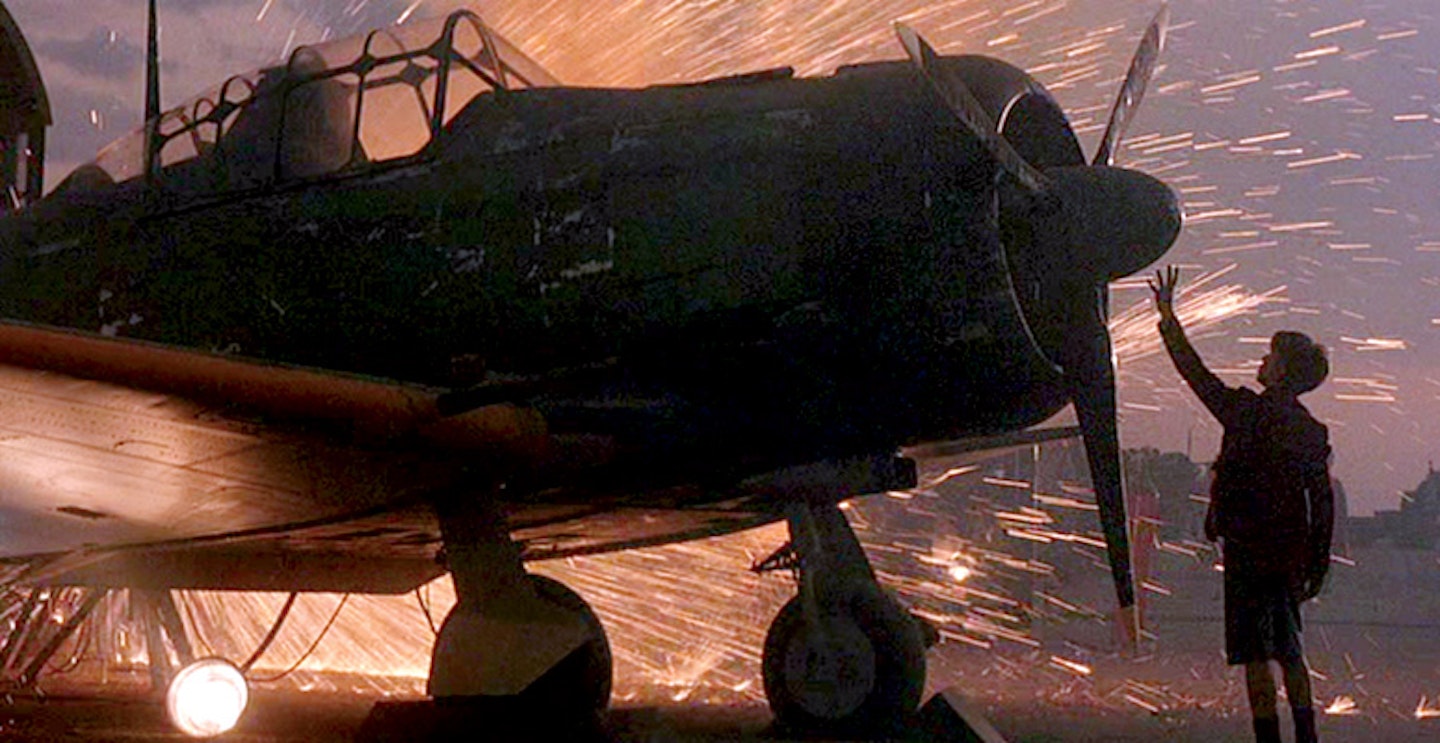
The moment: Obsessed with the Japanese air force, Jim Graham (Christian Bale) approaches a Zero with sparks flying all around it.
The magic: The perfect evocation of Jim’s idealized view of the world and the war. It is also a provocative reminder that conflict can throw up beauty amidst the terror.
Indiana Jones And The Last Crusade (1989)
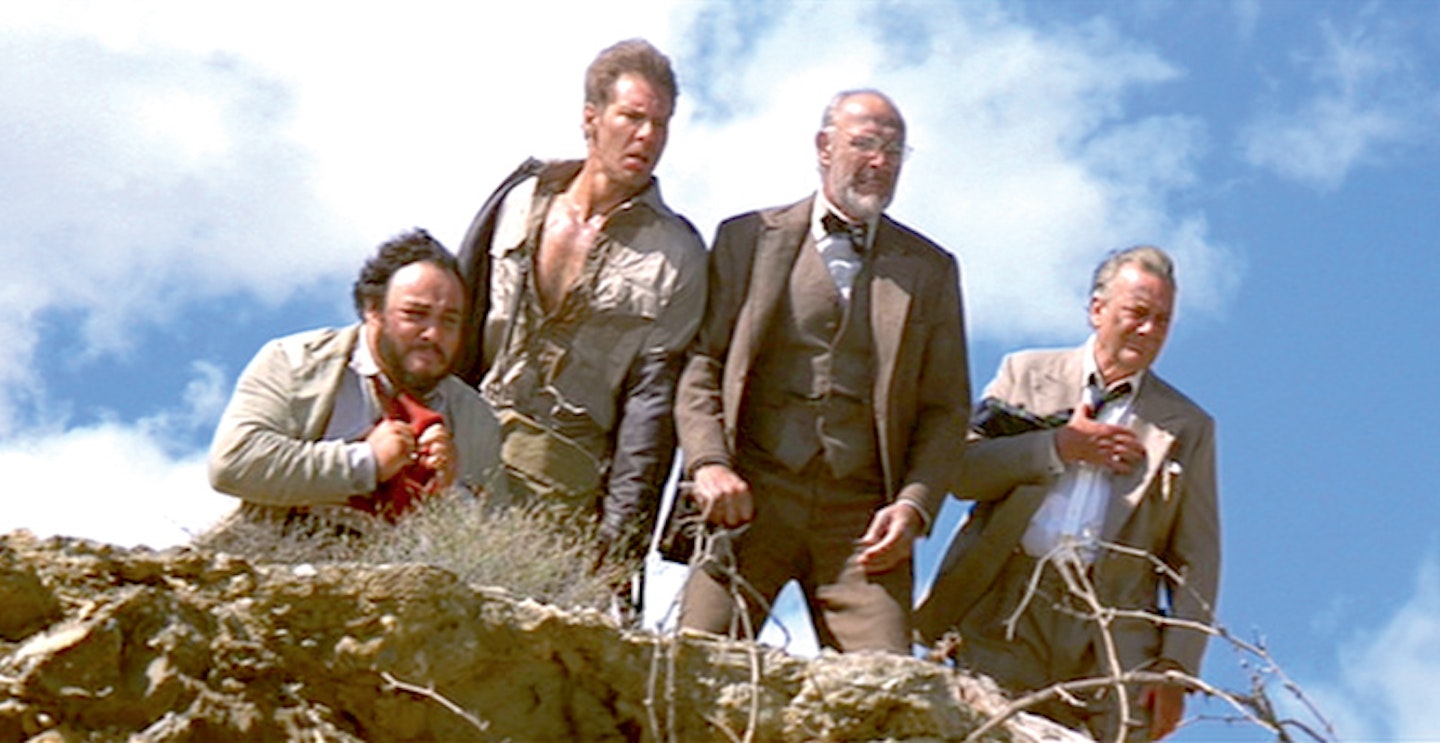
The moment: Having watched his son fall to certain death on the top of a tank into a ravine, Henry Jones (Sean Connery), accompanied by Marcus Brody (Denholm Elliott) and Sallah (John Rhys Davies), look down at the wreckage and begin to mourn. Deep in grief, they fail to notice that Indy has joined them to see what the fuss is all about.
The magic: Pure comedy gold. Harrison Ford’s almost cartoony disheveled look and his expression as he strains to see what is going on, coupled with the group being completely oblivious to his presence is priceless.
Check out Empire's review of Indiana Jones And The Last Crusade here
Always (1989)
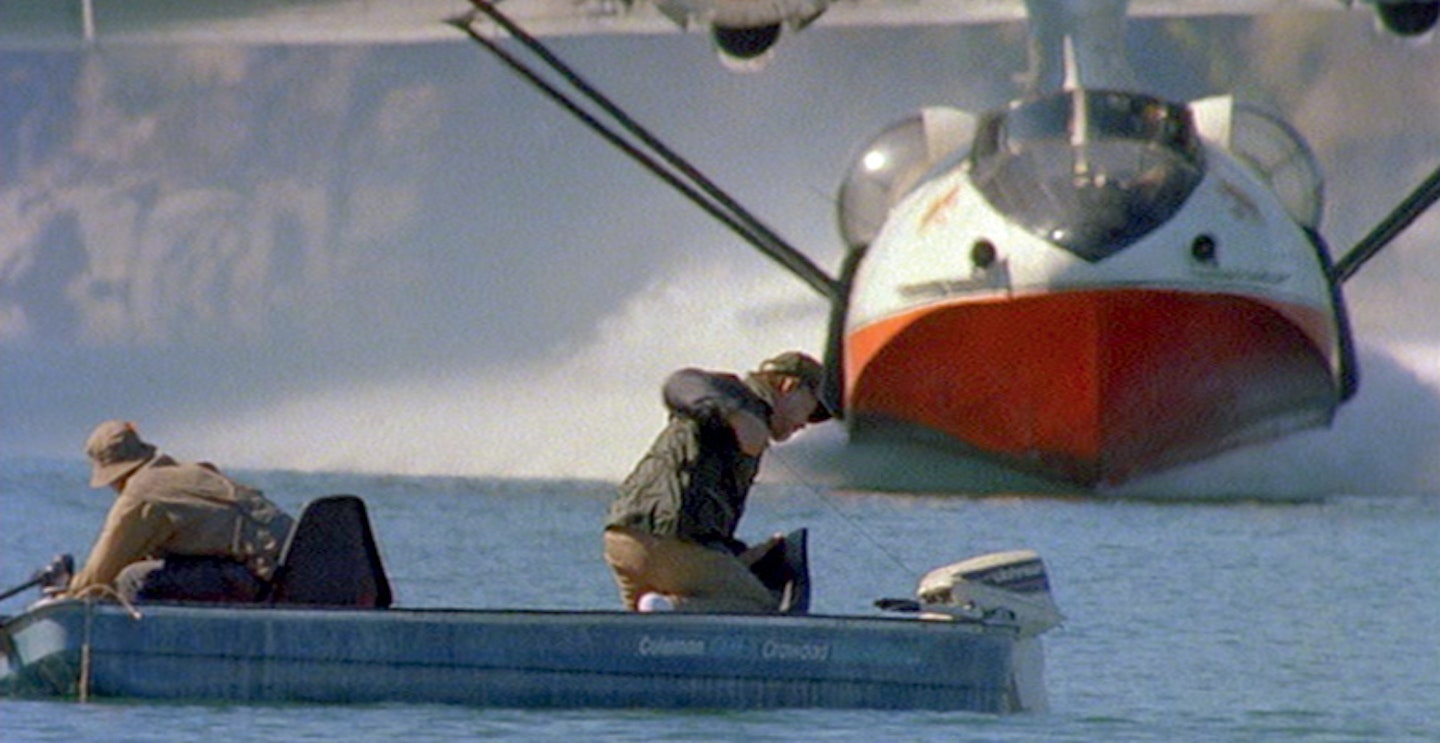
The moment: Two-fisherman drift in a boat on the middle of a huge lake. A huge boat-plane silently lands on the water behind them and powers towards them. Awoken by the aircraft noise, the two fisherman frantically try to start their outboard engine. The men looked doomed until the aircraft lifts from the water, barely missing the bozo’s heads.
The magic: This is the kind of simply staged yet hugely effective opening scene you only get in Spielberg flicks – confident, bravura, funny and exciting. It also includes a kind of Elmer Thudd type hunter, a figure of fun that Spielberg had satirised in early stuff like The Sugarland Express and Jaws.
Hook (1991)
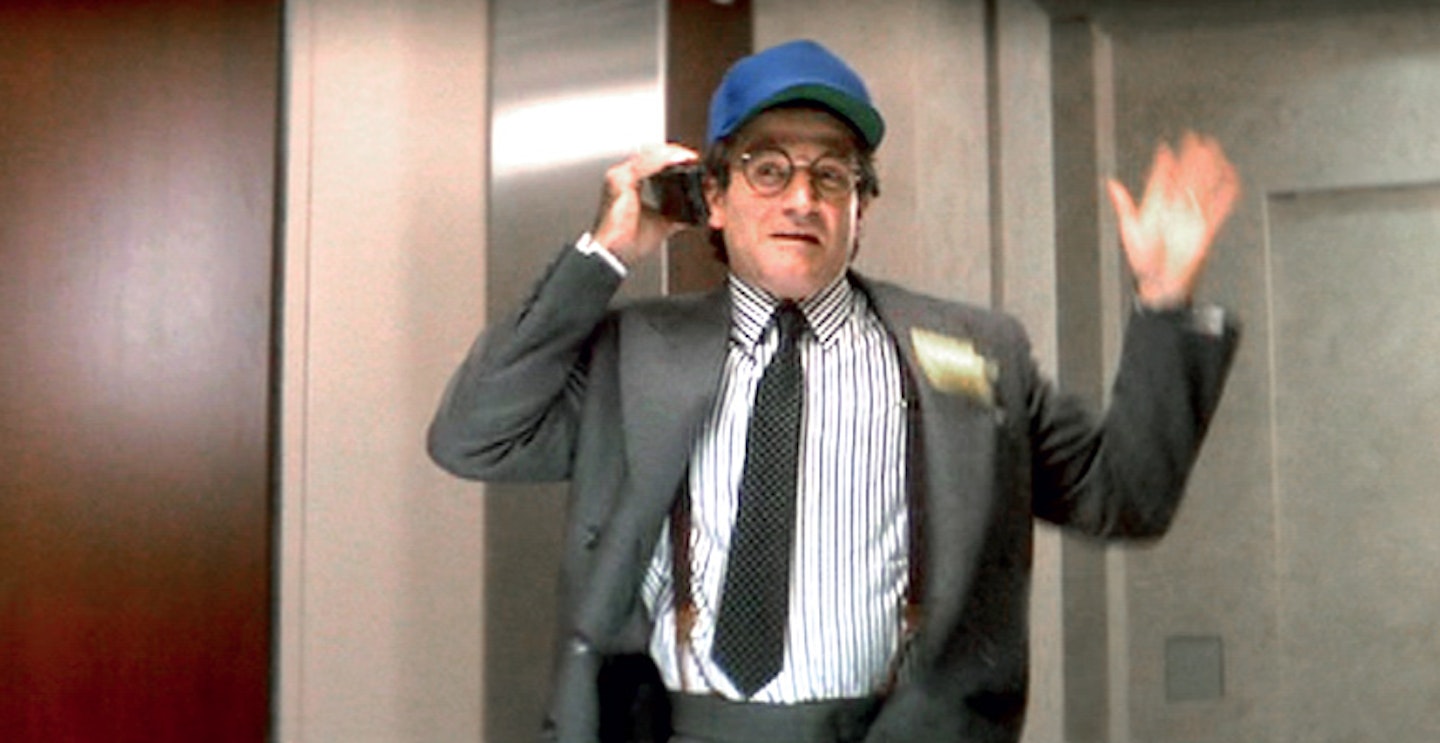
The moment: High flying lawyer Peter Banning (Robin Williams) is on his way out of the office when he is caught in a Mexican standoff with a co-worker — who is the quickest to answer their cell phone?
***The magic: ***The idea of a Western shoot out with mobile phones is a fun one, a further illustration of Spielberg’s linking Banning the businessman with Banning the adventurer — the film also draws comparisons between corporate raiding and piracy.
Jurassic Park (1993)
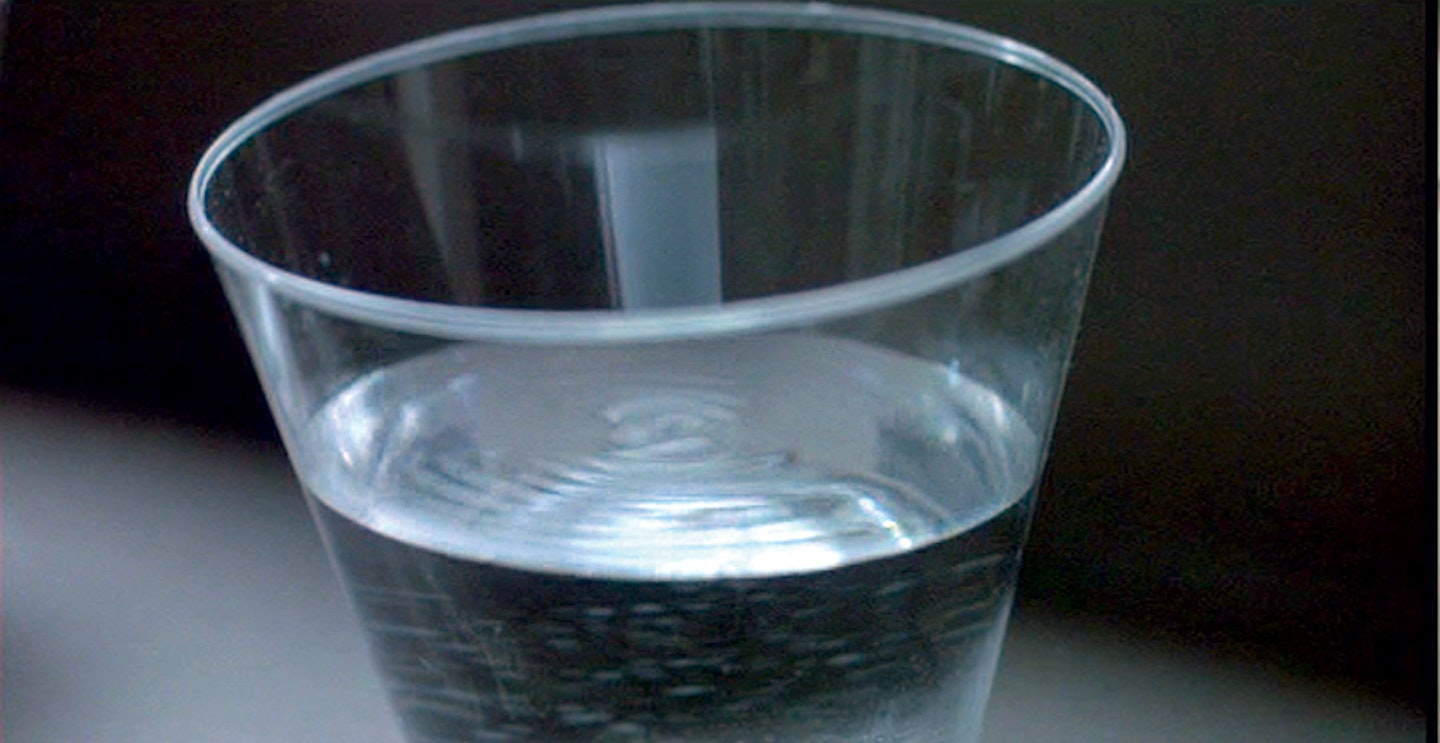
The moment: Jurassic Park is in meltdown. The computer systems are down, the power is off, and the tour has ground to a halt. Lex (Ariana Richards) and Tim (Joseph Mazello) are holed up in a stranded jeep. For no obviously apparent reasons, the glass of water on the dashboard begins to ripple.
***The magic: ***One of Spielberg’s signature, most parodied moments. The idea came to the director when he was stuck in traffic, listening to Earth, Wind And Fire and the interior of the car started to vibrate with the sound of the thumping bass. After much trial and error, practical effects supervisor Michael Lantieri put a guitar string under the glass and plucked it, creating perfect concentric circles. The perfect way to prime an audience that something wicked this way comes.
Schindler’s List (1993)

The moment: Oskar Schindler (Liam Neeson) watches the liquidation of the Krakow ghetto from a safe distance. His eye is drawn to Genia, a young girl in a red coat moving blithely through the carnage. It is a wake-up call that prompts Schindler into action.
The magic: Inspired by Roma Ligocka, a young child known around the ghetto for her striking red coat, Spielberg’s splash of colour in a B&W film has a practical purpose — it helps us pick her out in the crowd — a storytelling purpose — it keys us into Schindler’s viewpoint — but also a broader metaphorical one. “America and Russia and England all knew about the Holocaust when it was happening, and yet we did nothing about it,” said Spielberg about the shot. “We didn't assign any of our forces to stopping the inexorable march toward death. It was a large bloodstain, primary red colour on everyone's radar, but no one did anything about it. And that's why I wanted to bring the color red in.”
Jurassic Park: The Lost World (1997)
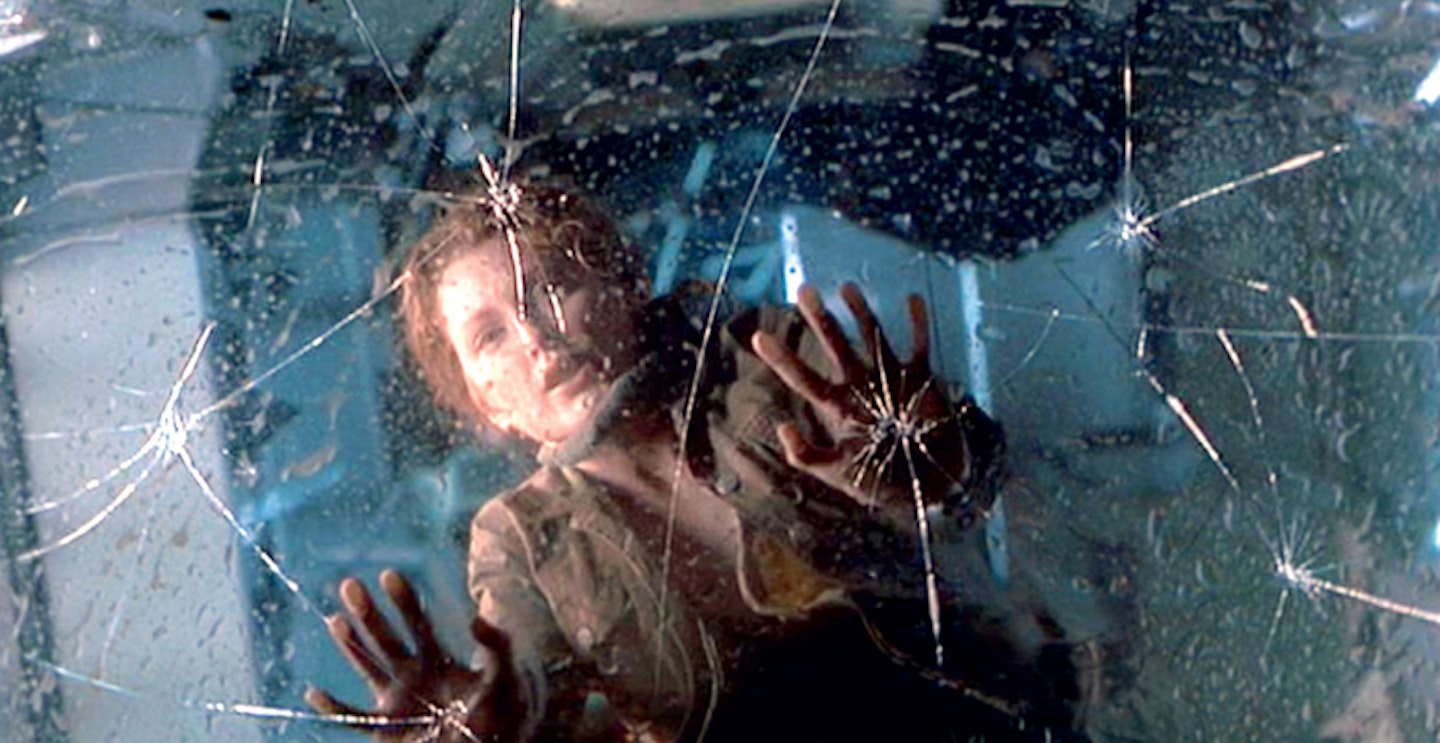
The moment: The tyrannosaurus rex has pushed the research trailer over the edge of a precipice. Photographer Sarah Harding (Julianne Moore) falls onto the back window of the upended trailer and as she lies flat and vulnerable, the glass slowly begins to fissure — there is nothing she can do about it.
The magic: The tension is unbearable, much more memorable than anything related to the dinosaurs.
Check out Empire's review of Jurassic Park: The Lost World here
Amistad (1997)
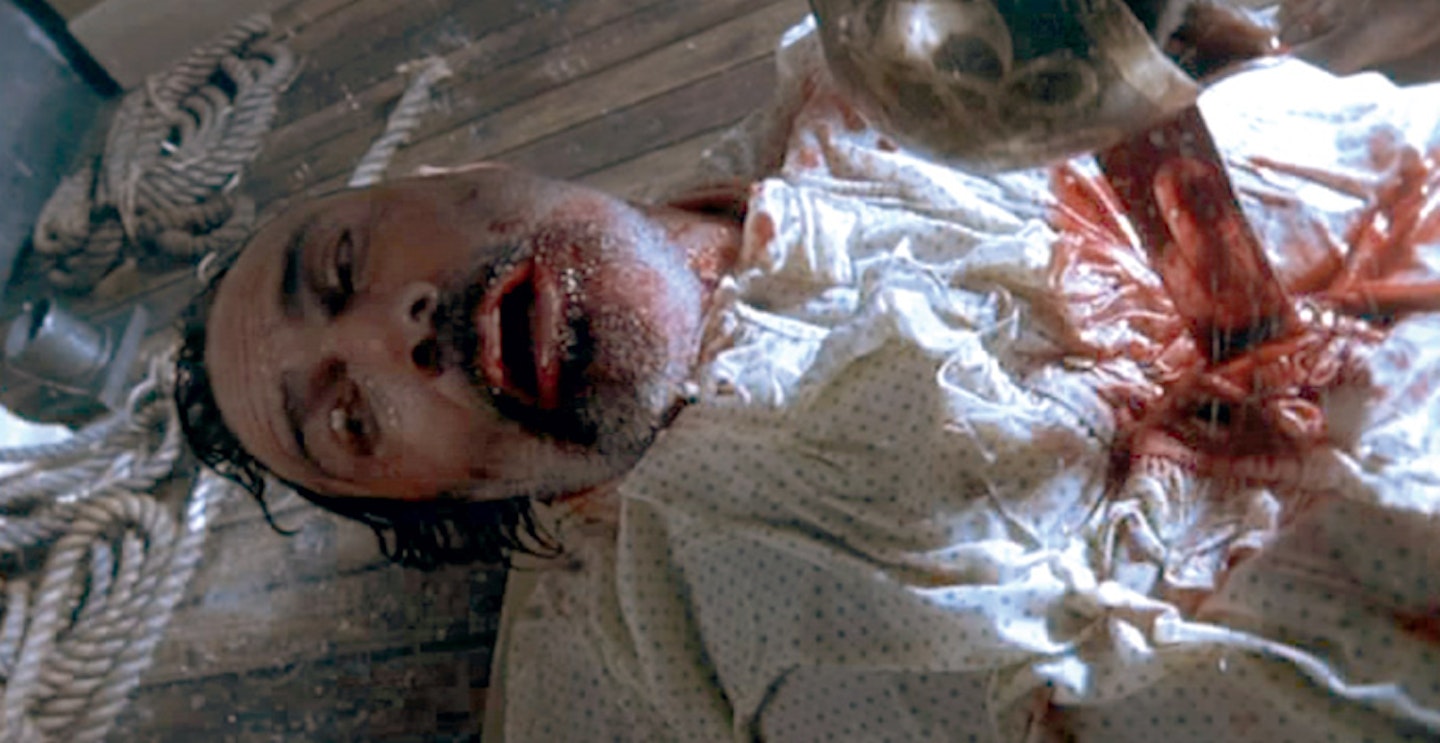
The moment: The captives aboard the Spanish slave ship La Amistad break free and begin an insurrection led by Cinque (Djimon Hounsou) killing the ship’s crew.
The magic: Rather than staging broad action, Spielberg covers the mutiny in stark, big close-ups - Cinque’s eyes illuminated by lightning, raindrops falling from his nose and mouth. Yet the killer moment comes from a low angle shot where the ex slave pulls his sword from his victim’s chest. In a film made up of stately tableaux, it is a startling off-kilter visual moment.
Saving Private Ryan (1998)
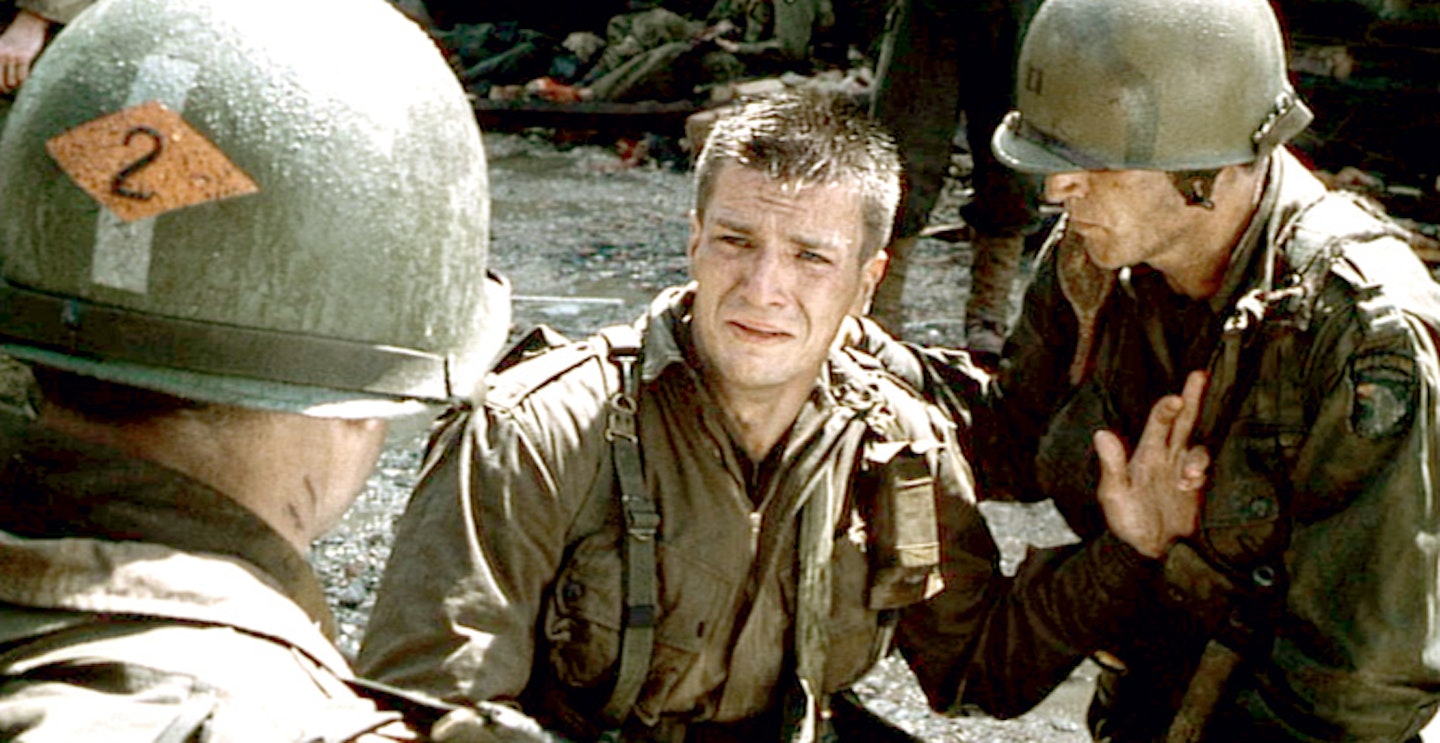
The moment: A crack unit, led by Sgt. John Miller (Tom Hanks), move through the French countryside looking for Private James Ryan (Matt Damon) whose three brothers have been killed in conflict. Early in the flick, the squad is delighted to find Private Ryan alive and well behind enemy lines. Only they’ve found the wrong Private Ryan.
The magic: For a straight up WWII action adventure, this is an unusual absurdist beat, another example of Spielberg’s ability to perfectly judge comic relief within the darkest of contexts.
A.I. Artificial Intelligence (2001)
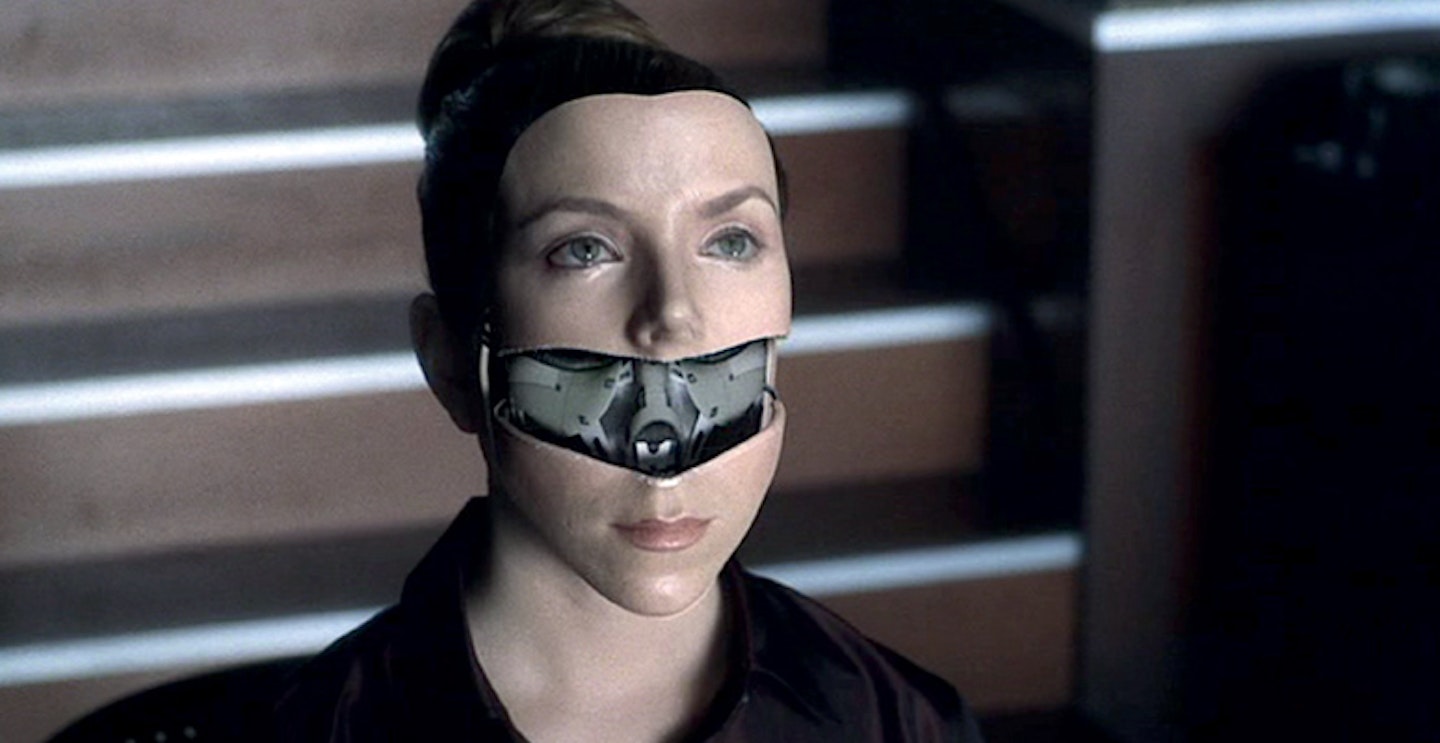
The moment: Professor Hobby (William Hurt) demonstrates the current state of his robotic art in his cybertronics lab. Hobby stabs his secretary Sheila (Sabrina Grdevich) in the hand, then opens her face to reveal a mechanical interior.
The magic: One of the last things shot, the image of a woman’s face opening up like a garage door to reveal a nexus of mechanics comes as a complete surprise yet feels refined and realistic — the perfect application of digital effects to create something that is simultaneously jaw-dropping yet matter of fact.
Check out Empire's reivew of A.I. Artificial Intelligence here
Minority Report (2002)
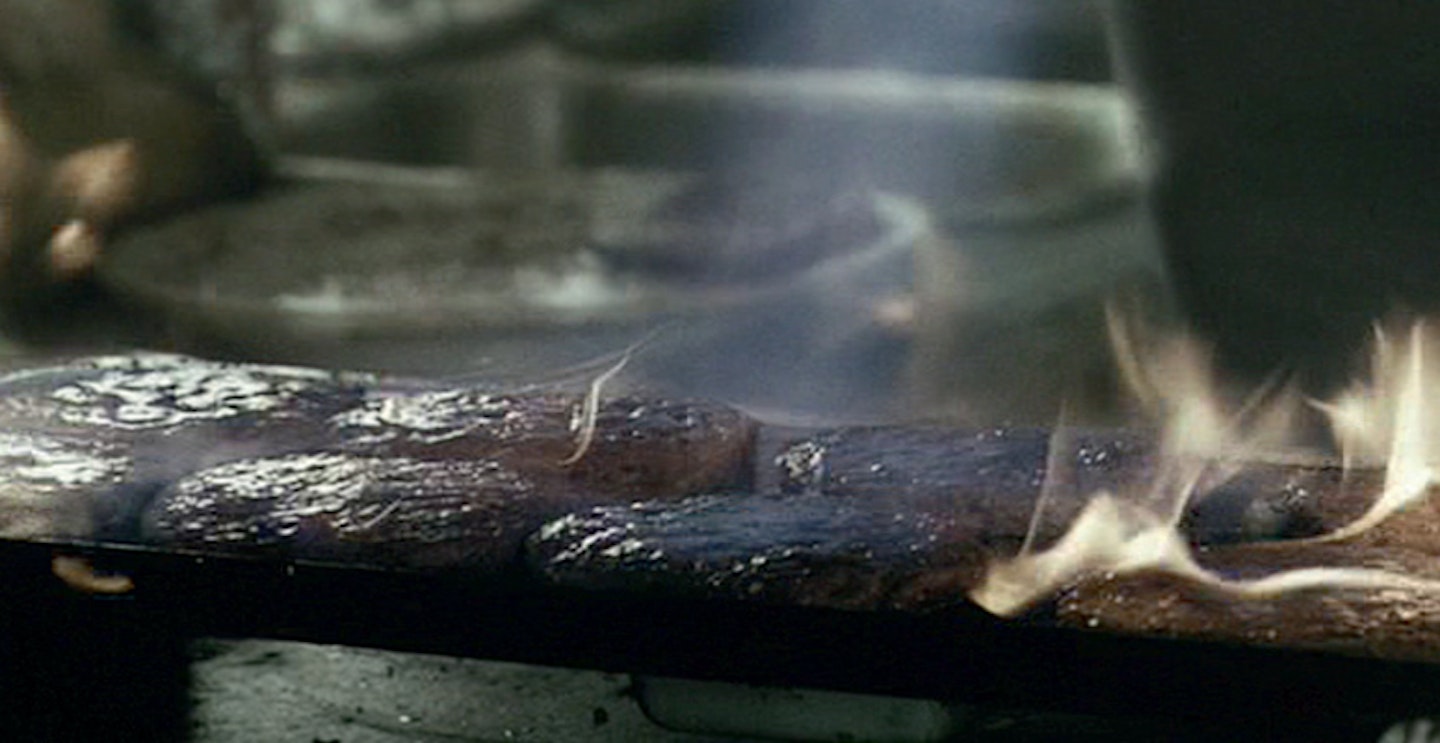
The moment: On the lam from the justice department, Pre-Crime chief John Anderton (Tom Cruise) is cornered in an alley way by jet-pack clad law enforcement officers. Wrestling with the officers, Anderton is dragged through the air on a hover pack. The mid-air struggles flies into an apartment where the flame from the jetpack flame grills some burgers.
The magic: No-one can inject great bits of business and detail into action set-pieces better than Spielberg — using the jet pack to barbecue some burgers is a deft moment of comedy that doesn’t undermine the tension or excitement.
Catch Me If You Can (2002)
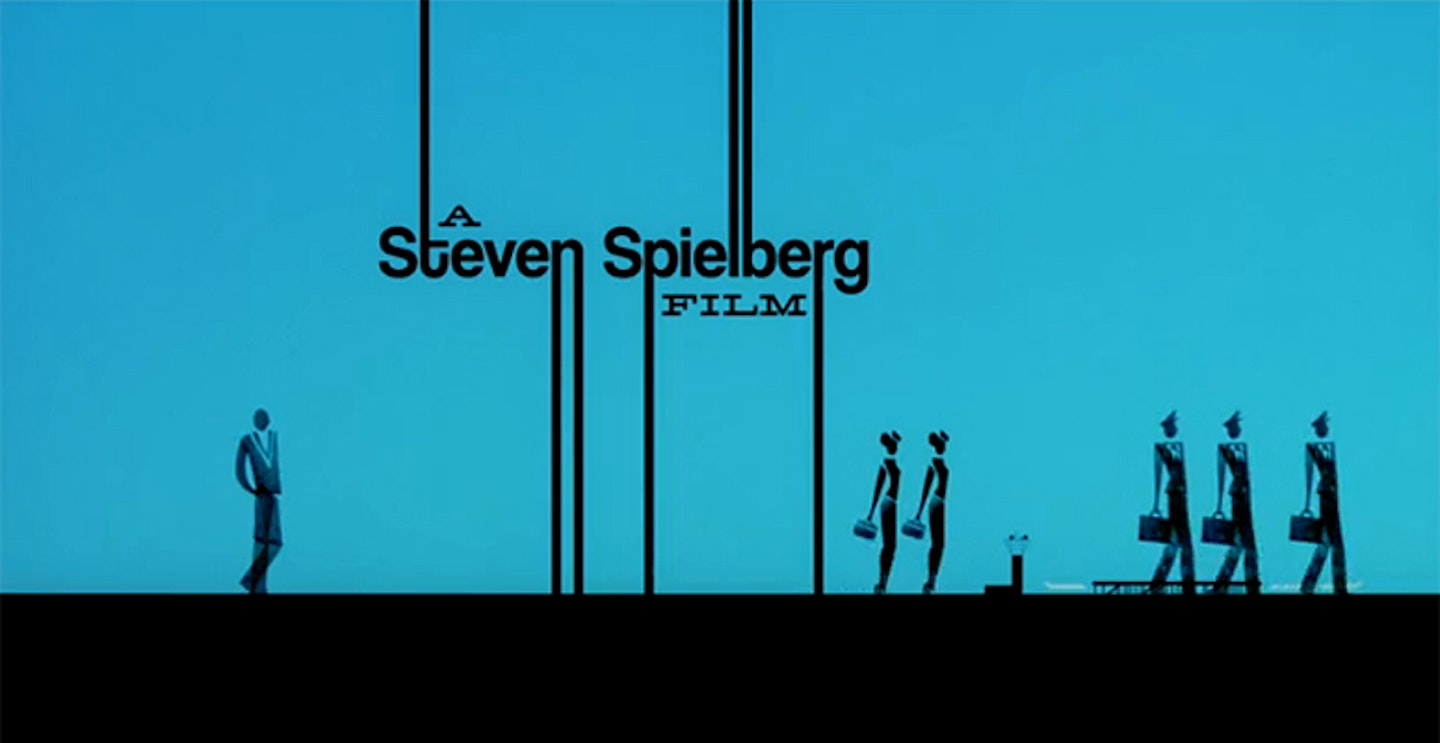
The moment: The opening credit sequence, a jazzy sixties-inspired, animated collection of the film’s key milieus and settings, all set to a groovy John Williams theme.
The magic: Spielberg’s best ever title sequence, shot through with Saul Bass cool, perfectly laying the groundwork — both narratively and tonally — for the film that follows.
The Terminal (2004)

The moment: Trapped in an airport, Viktor Navorski (Tom Hanks) woos flight attendant Amelia Warren (Catherine Zeta Jones) with a dinner put on with the help of his airport worker pals. The waiter is Gupta (Kumar Pallana), who delights everyone with an unexpected display of magical hoop juggling.
The magic: This is the kind of incidental, nothing-to-do-with-the-plot detail that reigns supreme in indie flicks (Pallana is a Wes Anderson stalwart) but rarely in the mainstream. A pure charming delight.
War Of The Worlds (2005)
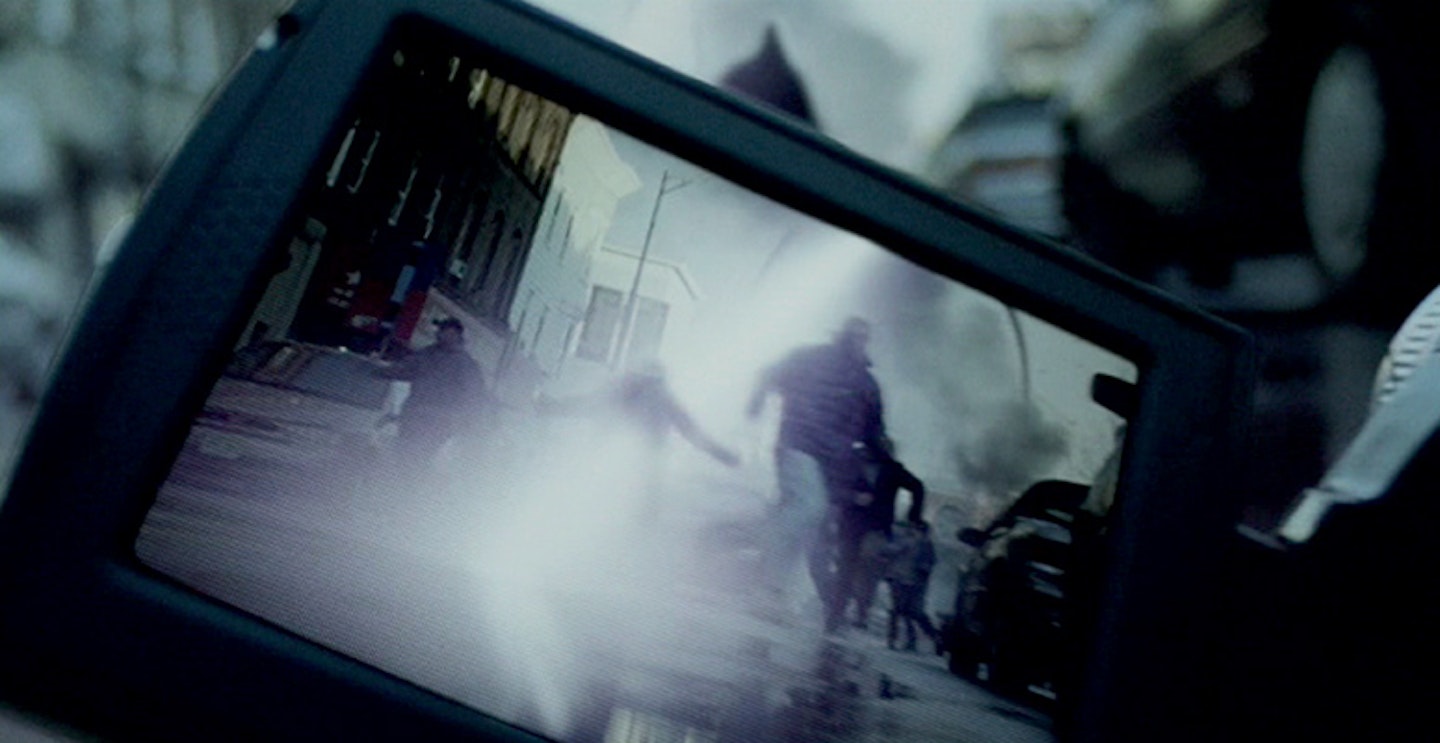
The moment: The tripods have risen from the ground and all hell has broken loose. As everyone ducks for cover, horrifying laser bolts disintegrate fleeing victims into a pile of dust. In all the melee, a digital camcorder is dropped and Spielberg’s camera pushes in to capture the action unraveling on smaller screen.
The magic: War Of The Worlds has often been categorized as a 9/11 sci-fi film and Spielberg’s use of the camcorder as a filter for the action is a reminder of the citizen journalism ethos and the placing of the genre within a distinctly modern context.
Munich (2005)
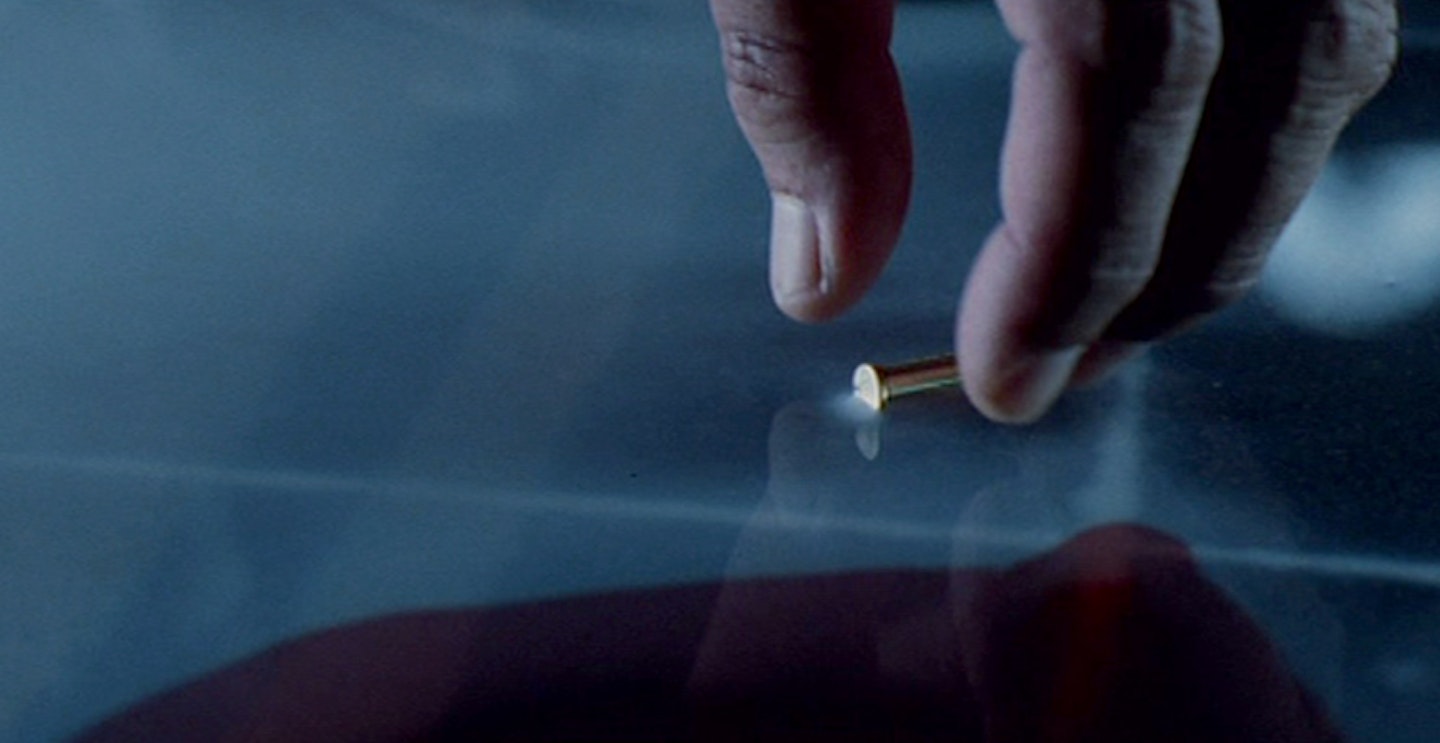
The moment: In the aftermath of the 1972 Munich Olympic killings, a Mossad team is dispatched to deliver retribution. The group track down their first target, Abdel Wael Zwaiter, returning to his apartment carrying groceries. Avner (Eric Bana) and Robert (Mathieu Kassovitz) shoot him dead, his blood intermingling with the spilt milk on the floor on the cold hallway floor.
The magic: Some thirty years into his career, Spielberg has not lost his ability to conjure up chilling, memorable images. There is something primal in the image — blood and milk, the stuff that gives us life, as signifiers of death — as well as displaying a haunting aesthetic quality.
Indiana Jones And The Kingdom Of The Crystal Skull (2008)
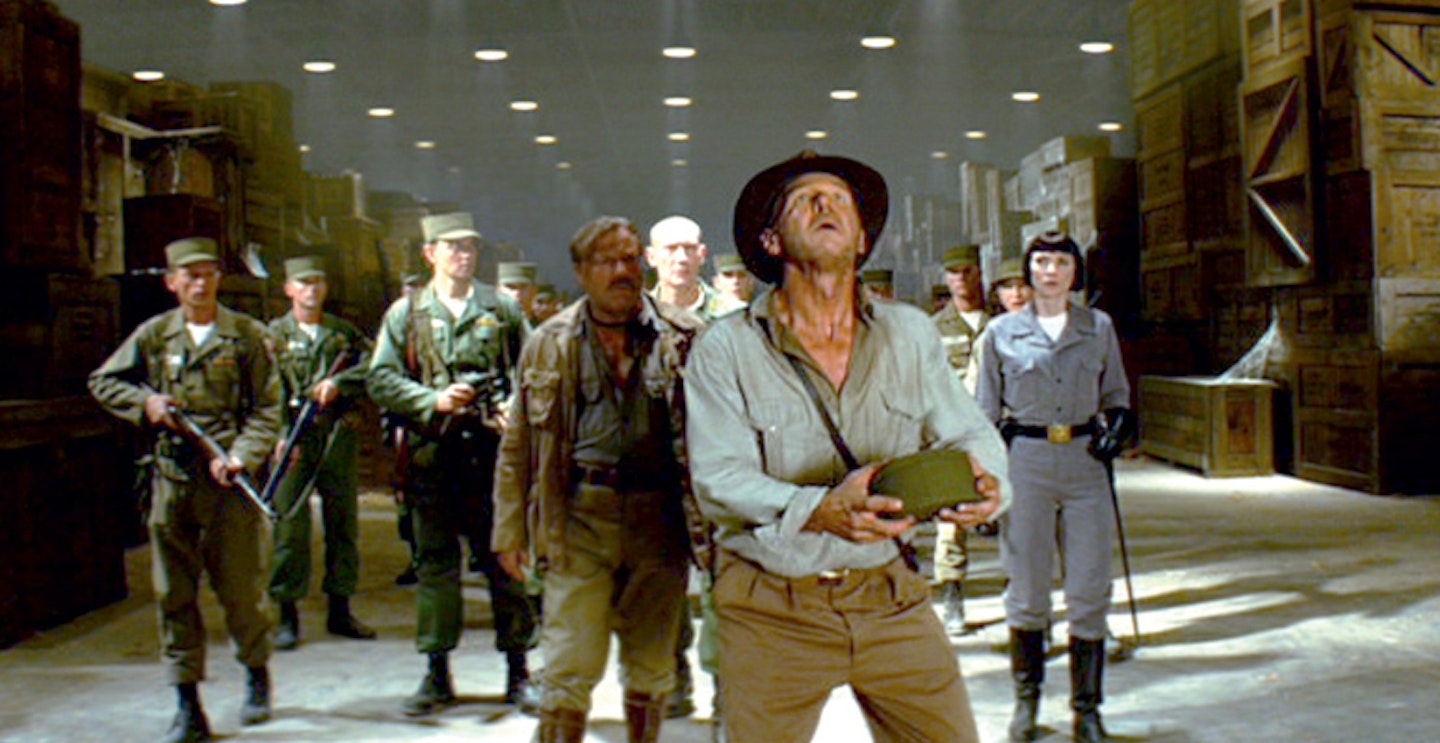
The moment: Indy has been captured by the Russkies and taken to Warehouse 51. To find a magnetic crate, he throws gunpowder in the air and follows the way it throws the air.
The magic: There may not be a lot to shout about in Crystal Skull but this is a terrific use of classic Indy ingenuity.
Check out Empire's review of Indiana Jones And The Kingdom Of The Crystal Skull here
The Adventures Of Tintin: The Secret Of The Unicorn (2011)
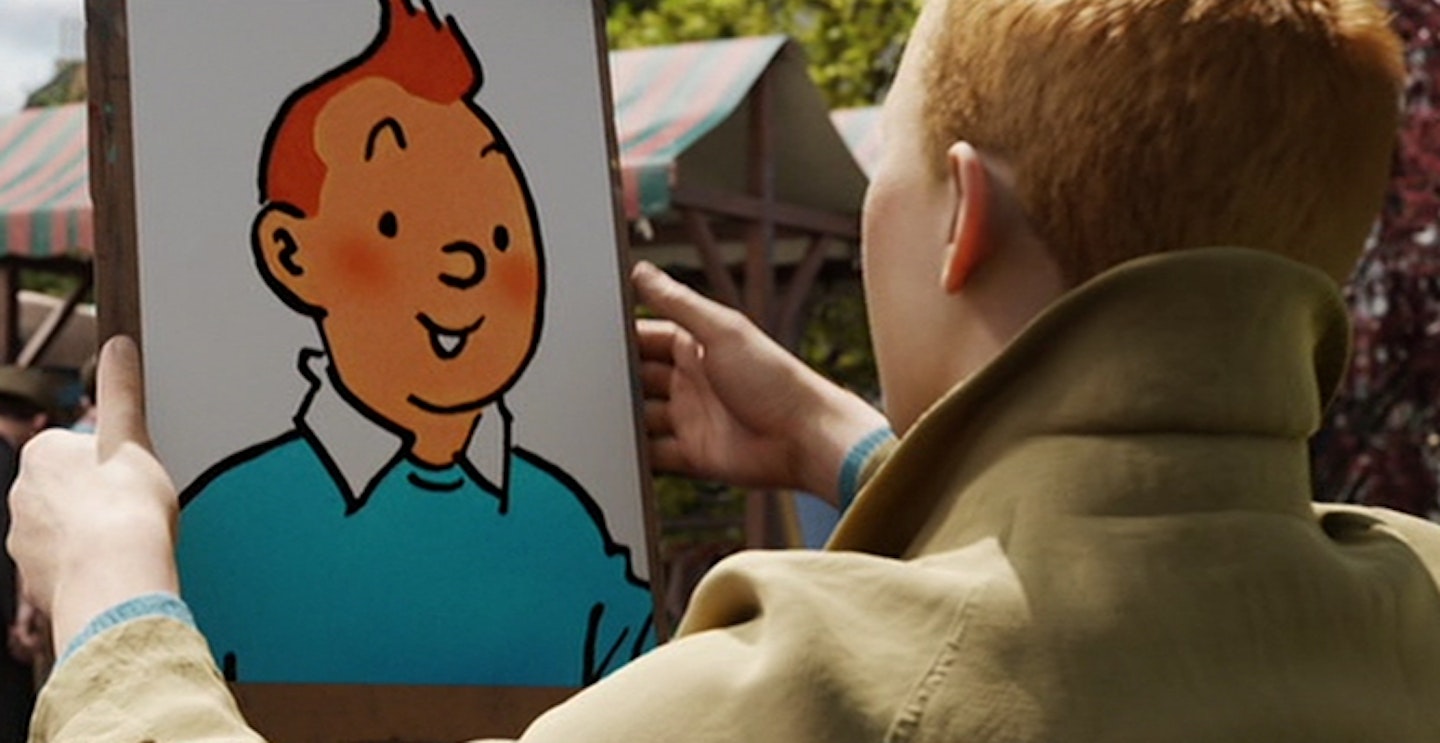
The moment: Tintin (Jamie Bell) is being drawn in a French market.
The magic: A delightful nod to Tintin’s comic book roots: as the CG Tintin is being drawn — by an artist who suspiciously looks like Tintin creator Herge — we finally see the finished portrait: a perfect rendition of the comic book iteration.
Check out Empire's review of The Adventures Of Tintin: The Secret Of The Unicorn here
War Horse (2011)
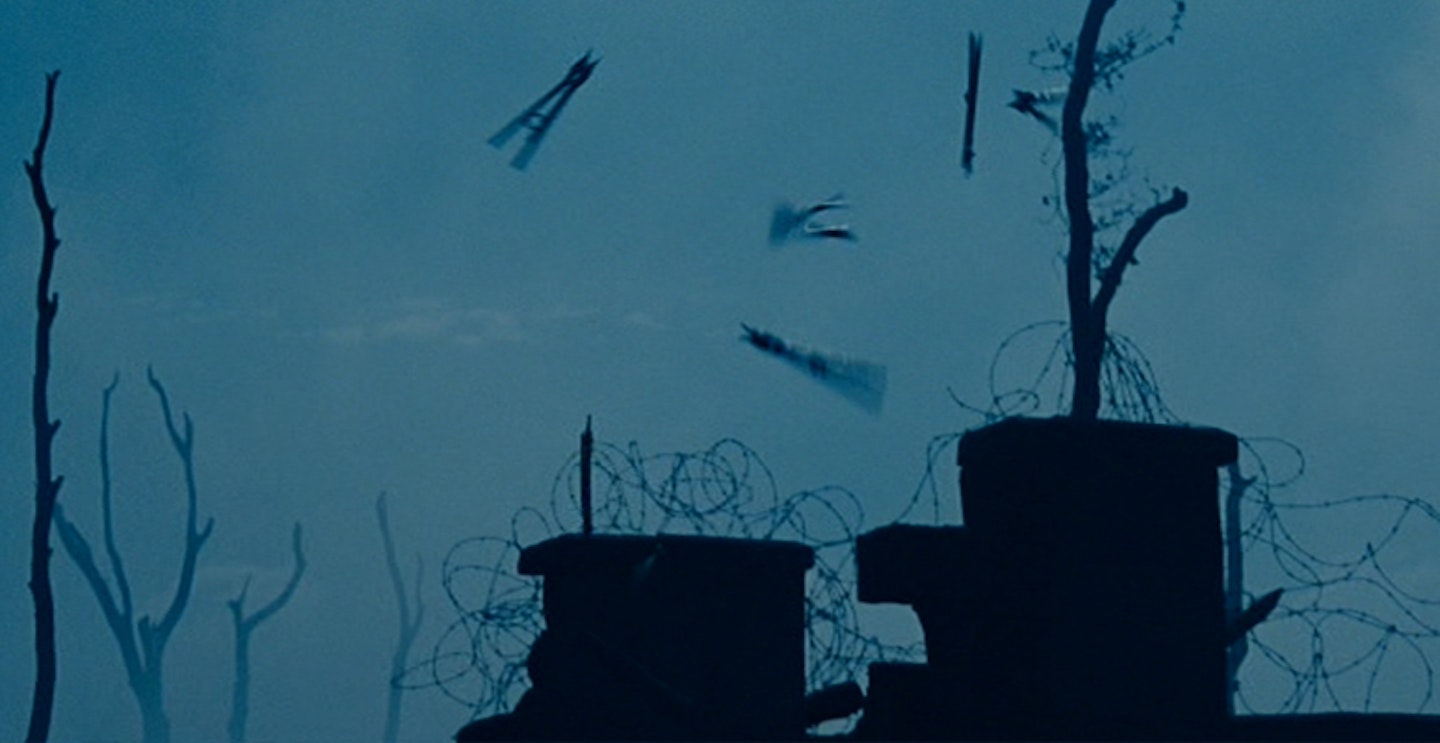
The moment: Resilient horse Joey is trapped in barbed wire in No Man’s Land. A Geordie soldier (Toby Kebbell) and a German (Hinnerk Schönemann) move gingerly out to free him. Realising the steed is intricately intertwined in the wire, they call for cutters. Cue a rain of wire cutters flung out from the trenches.
The magic: A simple gag, brilliantly executed — a prime example of Spielberg’s ability to use editing to create laughs.
Lincoln (2012)
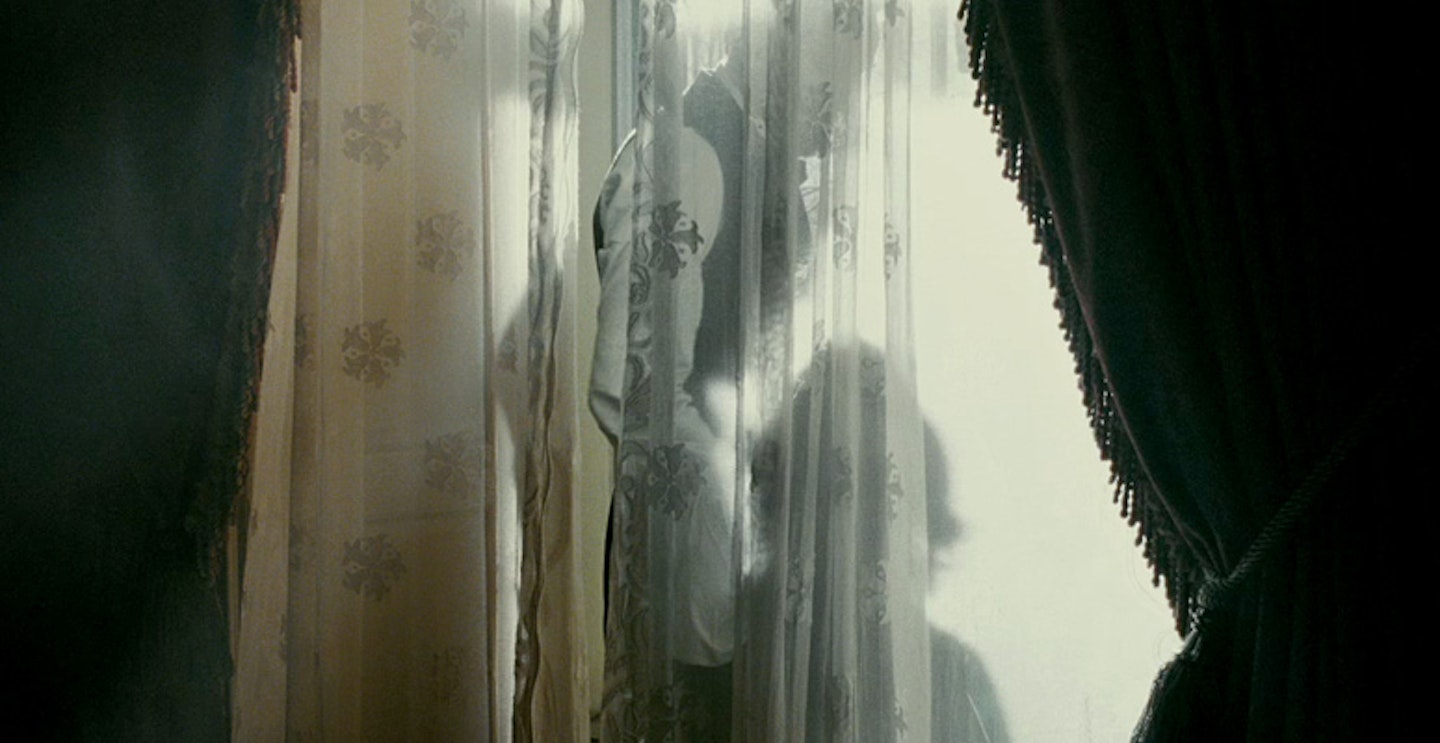
The moment: Abraham Lincoln waits at a window for the results of the 13th Amendment debate, with his son Tad (Gulliver McGrath).
The moment: For a film set mostly in dark drawing rooms, this beautiful image of Lincoln caught behind a window curtain is airy lyrical and optimistic. It’s the kind of image that Terrence Malick dreams about.
